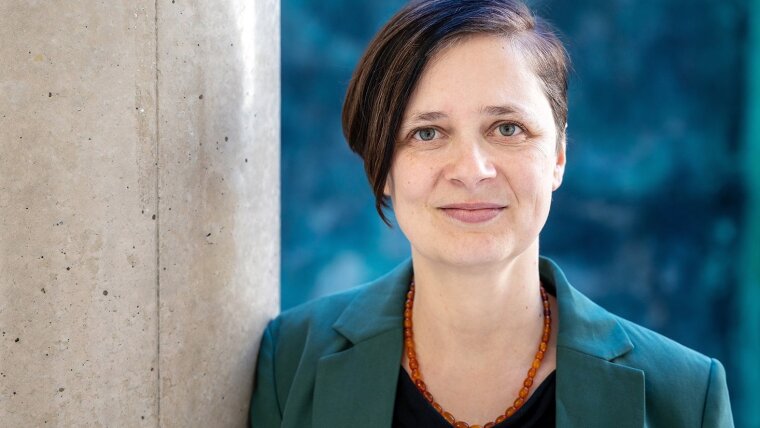
- Life
- Research
Published: | By: Stephan Laudien
The rapid pace of technological progress raises questions that are not easy to answer. One such current question is whether language learning apps are suitable for replacing traditional language learning. Dr Diana Feick, who has been working as a junior professor in empirical teaching research at Friedrich Schiller University Jena since the winter semester 2024/25, has a clear answer: »Modern language tools can help with learning, but they are still a long way from replacing the human interaction that is essential for speaking.«
In addition, the apps currently on offer are often outdated in terms of language learning theory and can therefore only provide support in certain aspects, such as learning vocabulary. Even the use of artificial intelligence does not change this, at least for the time being, says Diana Feick: »It is precisely with less common languages and topics that AI quickly starts to hallucinate.«
All participants should feel seen and heard
As a researcher, Diana Feick focusses on teaching, on the interaction between teaching staff and learners. There is an enormous range in the field of German as a second and foreign language, says the 47-year-old. This includes refugees who are learning the basics of German, people who want to work in Germany, and academics who want to engage in professional dialogue with colleagues in Germany.
Teaching staff are faced with the challenge of offering solutions that are as tailored as possible to each individual. This naturally includes digital forms of teaching, says Diana Feick. The junior professor with tenure track adds that there have been enormous changes in language learning programmes, especially since the coronavirus pandemic. Hybrid formats, in which students are taught directly and other learners are connected via video conference at the same time, are also of interest.
Prof. Feick is currently leading a study on a hybrid teaching format in which students from Germany and Latin America are taught together: »The question is what adjustments teaching staff need to make to ensure that all participants feel seen and heard.« This is particularly challenging for the teaching staff. The study therefore includes observing lessons as well as interviewing learners and analysing the materials used. The latter is important because German lessons in the Global South often have fewer resources at their disposal.
Enthusiasm for people and cultures in Latin America
Diana Feick knows Latin America from her own experience, having worked and conducted research in Chile, Colombia, Mexico and Argentina. She says she is fascinated by the people and culture of these countries. After studying German as a foreign language, linguistics and communication and media studies in Leipzig, her first stay abroad took her to Colombia for four years, where she worked at the Universidad Nacional in Bogotá and at the Goethe-Institut.
Further stops in her continuing education as a German teacher included Australia, Egypt, Benin, Greece, Great Britain, Indonesia, Spain, Togo and Vietnam. Before moving to Jena, Diana Feick worked for several years at the University of Auckland in New Zealand. When asked about exciting research questions for the future, she says: »What professional language, socio-cultural and educational support programmes are needed so that immigrant teachers can be integrated into the Thuringian school system as quickly and easily as possible?« It would also be interesting to find out how language-sensitive lecturers should design teaching at German institutions of higher education in order to create the best possible learning conditions for diverse, international and multilingual students.
In her free time, Diana Feick enjoys cycling, films by Andreas Dresen and reading. Her favourite books include Sten Nadolny's »The Discovery of Slowness« and »Als wir träumten« by Clemens Meyer.